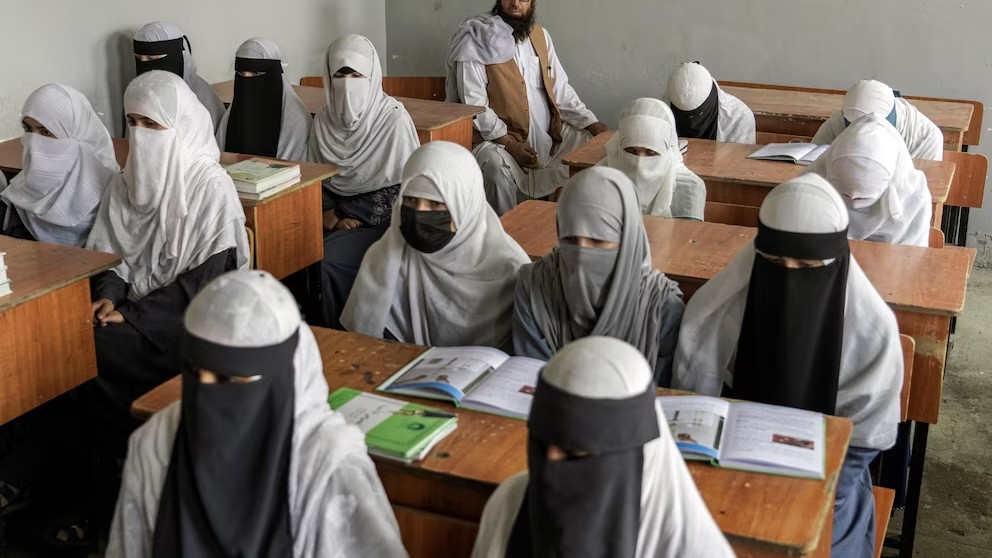- Monday September , 18, 2023 marks two years since girls were banned from attending high school in Afghanistan. This is an unjustifiable violation of human rights that inflicts long lasting damage on the entire country. Girls belong in school- Antonio Guterres, UN-SG
Monday September 18, 2023 marks two years since girls were banned from attending high school in Afghanistan. This is an unjustifiable violation of human rights that inflicts long lasting damage on the entire country. Girls belong in school- Antonio Guterres, UN-SG
Afghanistan is the only country in the world with limits on female education, two years after the Taliban outlawed girls attending school past the sixth grade.
Because it allegedly did not adhere to their version of Islamic law, or Sharia, the Taliban prohibited girls from continuing their education past the sixth grade.
For boys, they didn't stop it. They haven't made any headway in establishing the circumstances they claim are required for girls to return to school over the last two years.
What if this behavior persists? The education of girls will be seriously threatened.
One of the clear effects of an education embargo, according to Roza Otunbayeva, chief of the U.N. mission in Afghanistan and special representative of Antonio Guterres for Afghanistan, is the lack of training for future medical professionals.
Following the Taliban edict outlawing higher education for women last December, female medical students had their studies put on hold.
Afghan women work in hospitals and clinics since it is one of the few industries that is accessible to them, but as time goes on, the pool of competent candidates will diminish.
If women are the children's primary caregivers, children will also miss out on medical care because Afghan women are not allowed to see male doctors.
If nothing changes in the future, where will the female physicians, midwives, gynecologists, or nurses come from? Otunbayeva told The Associated Press in an email.
"How will Afghan women be able to access the most fundamental healthcare services if there are no female professionals to treat them in a strictly gender segregated society?"
The high school prohibition concerns more than just women's rights. For all Afghans, the issue is getting worse.
There have been tens of thousands of teacher layoffs. Support personnel are also out of work. The education of girls has hurt private organizations and companies that profited from it.
Afghanistan's economy is in ruins, and household incomes are rapidly declining. According to UNICEF, the exclusion of women from the workforce costs the nation's GDP billions of dollars.
With their shift toward madrassas, or religious schools, the Taliban are placing an emphasis on Islamic knowledge above fundamental reading and arithmetic, paving the way for a generation of kids without access to modern or secular education to better their or the nation's economic future.
Other effects on the broader populace include child protection and public health.
According to U.N. statistics, Afghan girls aged 15 to 19 who have not completed secondary or higher education have higher birth rates.
Additionally, a woman's education can influence whether or not her daughters marry before turning 18 and whether or not her children receive the recommended vaccinations. According to the U.N., one of the main causes of deprivation is the lack of education for women.












